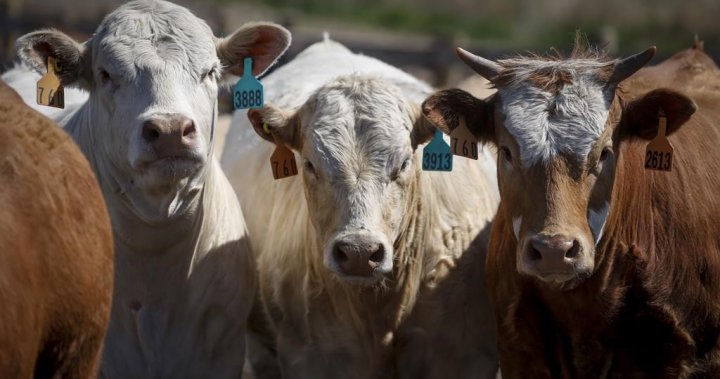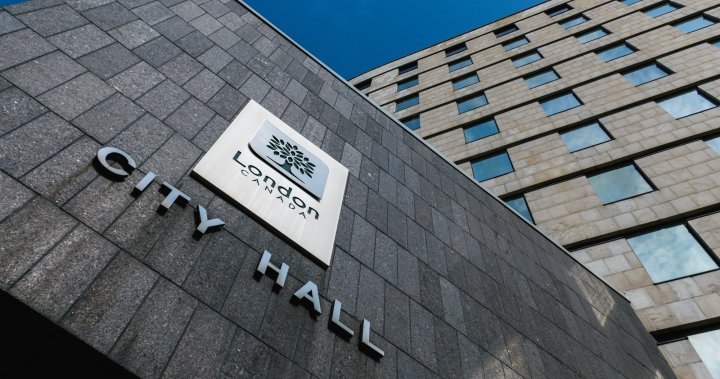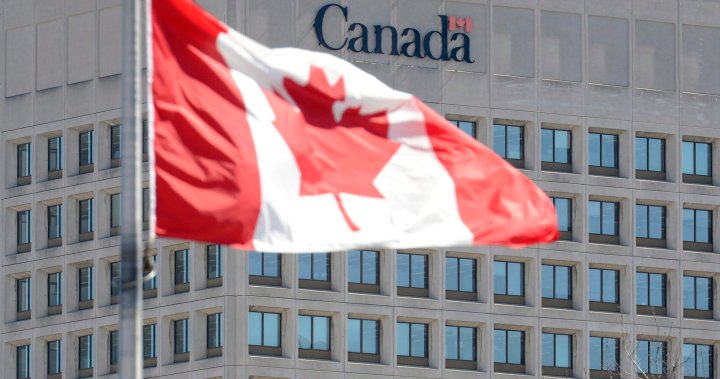As world leaders meet in Dubai at COP28 to discuss mitigating climate change and avoiding a disastrous rise in global temperatures, a group representing Canadian beef producers will argue to keep meat on the people’s plates.
“Our goal is to make sure that the conversation… [is] that meat is a vital source of food,” past president of the Canadian Cattle Association Bob Lowe said in an interview with Global News.
For the 28th year, the UN summit known as COP (officially the Conference of the Parties under the United Nations Framework Convention on Climate Change) brings policymakers together to discuss climate change.
Lowe, speaking from Nanton, Alta., on behalf of the registered lobby group, told Global News the Canadian Cattle Association (CCA) was sending delegates to the summit to explain “the benefits of the cattle industry to the environment and to human beings as far as the nutritional source of food.”
The UN had previously stated the rearing of livestock used very large amounts of land and created large amounts of greenhouse gas emissions (GHGs), which contribute to climate change.
“We feel there’s such a large or at least I won’t say how large, but a very vocal movement against animal agriculture in particular beef,” Lowe said.
A 2019 Canadian government analysis states nearly 40 per cent of Canadians are actively trying to incorporate more plant-based foods into their diets. It estimates alternative proteins could grow to comprise a third of the total market by next year, which is worth billions.
Lowe said the CCA will focus on explaining the benefits of the cattle – namely that a cow eats plants that are tougher for humans to digest “and turn it into a very high quality, nutritious food source.”
“This COP is going to be a huge thing for, I believe, feeding the world,” Lowe said.
He told Global News the industry is working to reduce GHGs.
“We realize that methane is a big problem. We’re doing a lot of research right now.”
Ten per cent of Canada’s GHGs come from crop and livestock production, according to the federal government (not including fossil fuels or fertilizer).
That includes methane — one molecule of which contributes at much as carbon dioxide molecules, according to Tim McAllister, a Lethbridge, Alta.-based research scientist with Agriculture and Agri-Food Canada.
But even so, he told Canada’s food agriculture GHG emissions are relatively small compared to other sectors of the economy.
Giving livestock high-energy diets early on and adding vegetable oil to their diets lowers methane emissions, McAllister said.
While humans could reduce GHGs by eating less or no meat, McAllister told Global News “it’s no good to produce a bunch of food that has a low greenhouse gas emissions if it doesn’t meet the nutritional requirements of people.”
Meat offers nutrients like amino acids, iron or vitamins in higher concentrations than plant-based proteins, he said.
© 2023 Global News, a division of Corus Entertainment Inc.




